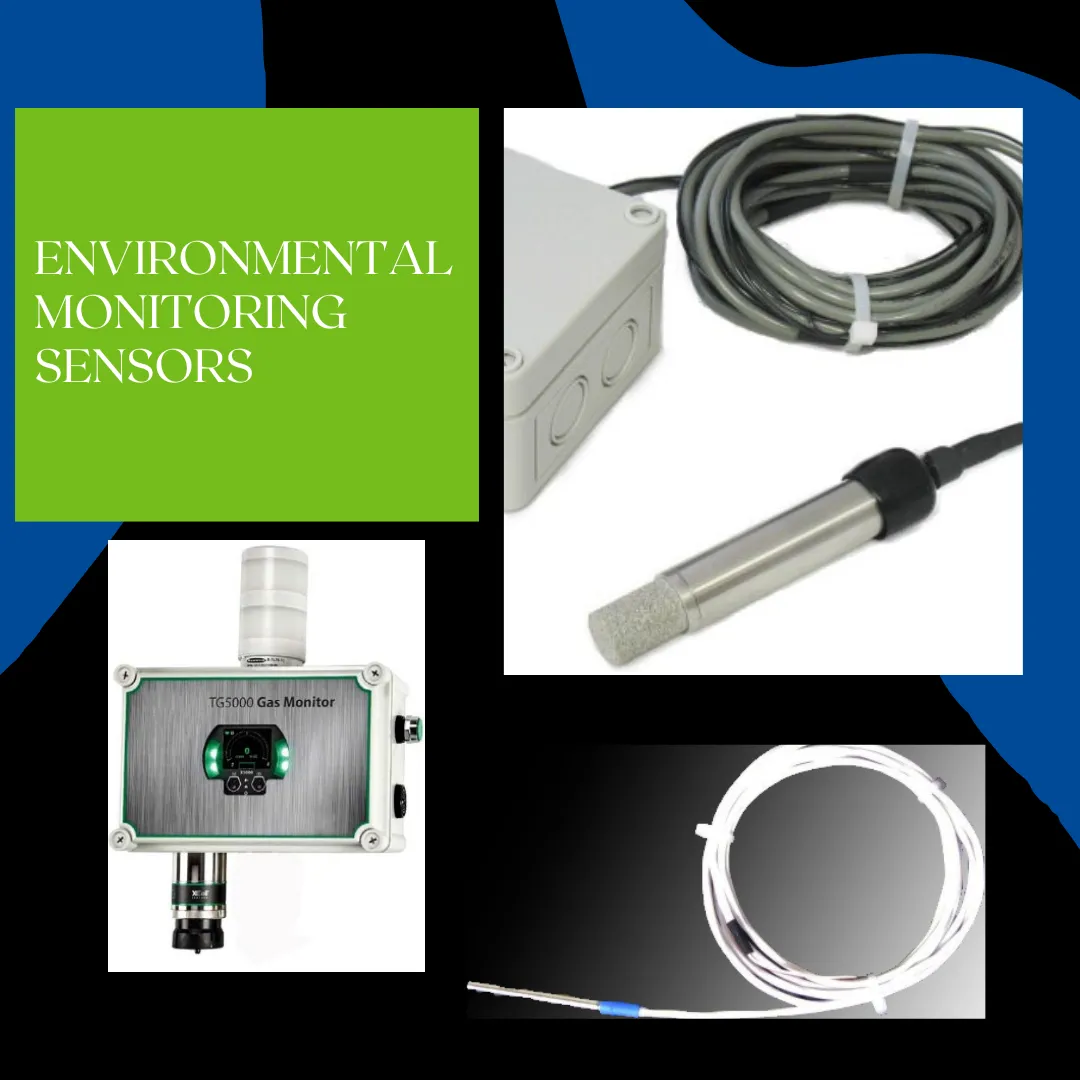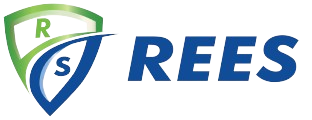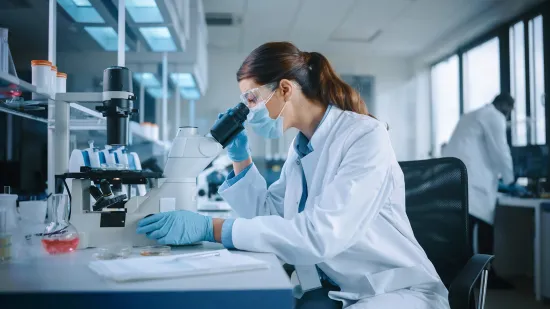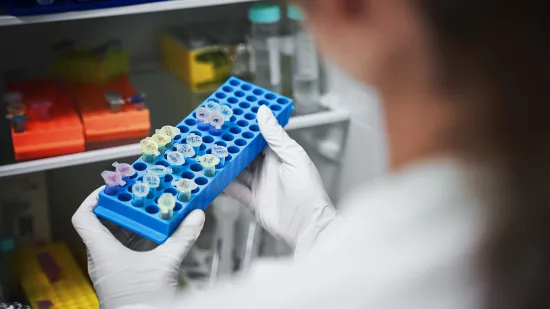EMS
Environmental Sensors for Critical Industries
Author: Gagan Kaur
Feb 28, 2025

Why Environmental Monitoring Matters
In critical industries across the science and manufacturing fields, the sensors used in environmental monitoring play a key role in ensuring compliance, product integrity, and safety. Whether you work in pharmaceutical manufacturing, biotech research, hospitals, blood banks, or cleanrooms, maintaining stable conditions ensures compliance, product integrity, and safety.
At Rees Scientific, we specialize in temperature sensors, humidity sensors, gas detection sensors, pressure monitoring, and more, helping clients across industries achieve regulatory compliance and operational efficiency. While many of our clients use our sensor catalog as a reference, Rees Scientific can support virtually any monitoring need with custom solutions.
Why Are Environmental Monitoring Sensors Important?
Environmental fluctuations can compromise research results, damage sensitive materials, and pose risks to safety. The right sensors help prevent costly failures by providing real-time monitoring, automated alerts, and historical data tracking for regulatory audits.
What types of sensors does my facility need for compliance?
The sensors required for compliance depend on industry regulations, facility type, and specific environmental needs. FDA, CDC, USP <797>, ISO 14644, and other regulatory bodies set strict guidelines on environmental monitoring. Rees Scientific offers expert guidance to help facilities choose the right monitoring solutions.
1. Temperature and Humidity Sensors: Maintaining Stability in Critical Environments
Industries: Pharmaceuticals, Biotechnology, Blood Banks, Research Labs, Hospitals, Cleanrooms
Temperature and humidity control is vital for biologics, vaccines, blood products, and laboratory research. Fluctuations can render samples unusable or cause regulatory violations.
Best Sensors for Temperature and Humidity Monitoring:
- RTD Temperature Sensors & Thermocouples – Used in cryogenic storage, freezers, and pharmaceutical stability chambers.
- Temperature/Humidity Transmitters – Monitor incubators, walk-in refrigerators, and lab freezers to prevent temperature excursions.
- Temperature Blocks – Ensure accurate cold storage temperature readings by mimicking product temperatures.
Does Rees Scientific provide documentation to meet compliance requirements?
Yes! We provide ISO 17025-certified calibration services, validation documentation, and compliance reports to support regulatory audits.
2. Gas Sensors: Protecting Air Quality and Workplace Safety
Industries: Research Facilities, Cleanrooms, Manufacturing, Hospitals and IVF Labs
Gas sensors play a critical role in detecting harmful or hazardous gases to ensure safe working conditions.
Best Gas Sensors for Environmental Safety:
- Carbon Dioxide (CO₂) Sensors – Used in incubators, greenhouses, and medical research labs.
- Oxygen Sensors – Monitor freezer farms, liquid nitrogen storage, and confined spaces for oxygen depletion.
- Ammonia Sensors – Essential for animal research facilities using ventilated cage racks.
- Combustible Gas Sensors – Protect industrial labs and hazardous storage areas from flammable gas leaks.
What compliance standards require gas monitoring?
Regulations such as OSHA standards, USP <797>, and FDA Good Manufacturing Practices (GMP) mandate continuous gas monitoring in laboratories, research facilities, and pharmaceutical manufacturing environments.
3. Airflow and Pressure Sensors: Ensuring Cleanroom Compliance
Industries: Cleanrooms, Compounding Pharmacies, Hospitals, Data Centers, Animal Research
Controlling airflow, ventilation, and pressure differentials is essential in regulated environments such as cleanrooms, sterile manufacturing, and hospitals. Maintaining positive or negative air pressure is crucial in sterile environments to prevent contamination.
Best Airflow & Pressure Sensors:
- Differential Pressure Transmitters – Maintain proper clean room air balance.
- Air Velocity Sensors – Monitors airflow in cleanrooms, animal research facilities, and other regulated environments ensuring air changes per hour meet standards.
- Large Diaphragm Pressure Switches – Help maintain HVAC efficiency and compliance with ISO standards.
What standards regulate airflow and pressure monitoring?
- ISO 14644 (for cleanrooms)
- USP <797> and <800> (for compounding pharmacies)
- FDA Good Manufacturing Practices (GMP)
4. Water, Light, and Motion Sensors: Specialized Monitoring for Critical Areas
Industries: Laboratories, Data Centers, Animal Research, Pharmaceutical Storage
In addition to temperature and gas monitoring, certain industries require specialized sensors to track other environmental conditions.
Best Specialty Sensors:
- Surface Water Detectors – Alert facilities to water leaks before costly damage occurs.
- Light Sensors – Ensure consistent lighting conditions in research environments.
- Rotation and Shaker Sensors – Ensure proper function of platelet rotators and lab shaker tables.
How do light and water sensors support regulatory compliance?
- Light Sensors ensure research animals receive consistent lighting cycles required for GLP compliance.
- Surface Water Detectors prevent water damage in data centers, labs, and pharmaceutical storage areas, protecting against equipment failure and regulatory violations.
Why Choose Rees Scientific for Environmental Monitoring?
Rees Scientific is a trusted leader in environmental monitoring solutions, offering a wide range of sensors to help industries meet regulatory standards and maintain operational efficiency.
Why Our Clients Trust Us:
✔ Comprehensive Solutions: We provide temperature, humidity, gas, pressure, and motion sensors tailored to your industry.
✔ Regulatory Compliance Expertise: Our monitoring solutions align with FDA, CDC, USP, and ISO standards.
✔ Custom Monitoring Systems: Need something specific? We can help monitor any kind of environment!
✔ 24/7 Support & Calibration Services: We ensure your sensors provide accurate, real-time monitoring with certified calibration services.
Frequently Asked Questions (FAQs)
What types of sensors is my facility required to use to meet compliance requirements?
This depends on your industry and applicable FDA, USP, and ISO standards. Rees Scientific can guide you in selecting the right sensors based on regulatory needs.
How do I integrate environmental monitoring sensors with my facility’s system?
Our team can help you customize a monitoring solution that integrates with your existing facility management system, BMS, or EMS platform.
Talk to Our Experts Today!
Understanding the types of sensors used in environmental monitoring is vital for operational efficiency and maintaining regulatory compliance. If you have questions about what sensors are optimal for your facility, Rees Scientific has you covered! Whether you need a temperature probe for cold storage, gas monitoring for your cleanroom, or a pressure sensor for sterile manufacturing, we’re here to help.
Contact our experts today for more information.



